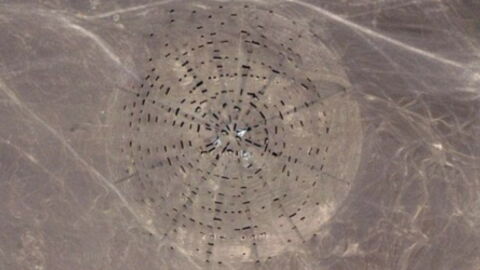The literal translation for the Chinese word ‘Tiankeng’ is ‘Heavenly Pit’ in English and this poetic term refers to a type of geological formation involving an unusually large sinkhole. Scientifically speaking, it is a ‘huge sinkhole’, a huge cavity with steep walls and open to the sky. This grotto is just one of the karst depressions that scientists decided to explore, and this perilous expedition had a very… unexpected outcome.
Discover our latest podcast
Overall, this impressive hole measures no less than 6.7 million cubic meters. This expedition was launched by a Chino-British team, led by Zhang Yuanhai, a member of the Institute of Karst Geology of the Chinese Academy of Geological Sciences, and Andy Eavis, the chairman of the British Caving Association. From the 4th to 8th October, 19 brave explorers launched a mission to go down and explore every nook and cranny of this hole, equipped only with a climbing rope.
A unique worldly abyss
‘The cave’s volume is of a rare enormity, making it world-class,’ says the experts in a statement published in the official journal for the Chinese Ministry of Science and Technology. Located in the forest of Guangxi, an autonomous region in the South of China, the monumental grotto ‘was actually discovered during a Hong Kong expedition last year, so it was named Hong Kong·Haiting Hall,’ explains the leader of the Chino-British team Zhang Yuanhai.
This achievement made by this second team of spelunkers involved diving into the abyss in order to observe how big it is.
‘This time, we mainly determined its volume and world-class status through three-dimensional scanning,’ revealed Zhang Yuanhai. And to say the least, the measurements of this natural monument compete with some of the most ambitious human achievements.
The size of a cathedral
100 meters wide, a length almost double that, and with a depth of almost 120 meters… These dizzying numbers are just the beginning of the wonders offered by the cave. It’s Southern slope actually collapsed to reveal the entrance of an extraordinary underground network.
Corridors, huge halls, gaping holes… But also cave-ins and rocky pillars. And to complete this amazing geological inventory, there are magical mineral formations known as ‘cave pearls’ a cluster of limestone rocks polished by the flow of the water. Water is also a source of wonder for scientists, and has revealed an unexpected passageway connecting the grotto to an underground stream that feeds into the local river Panyang.
Rome wasn’t built in a day
As well as these exceptional dimensions, the three-dimensional scanning of the grotto carried out by scientists have allowed them to track the history of this formation, as was done by Zhang Yanhai.
‘Three-dimension scanning found that Hong Kong·Haiting Hall has retained a lot of evidence of the collapse of the crater evolution, especially the traces of rock mechanics produced after the collapse, which are clearly visible, demonstrating the evolutionary characteristics of this tiankeng.’
An evolution that, according to scientists, would have spanned out over such an immense time scale as the size of the grotto itself.
‘The formation of all caves is not a one-step process. They basically have a history of more than 2 million years,’ concludes Zhang Yuanhai. Millions of years have led to the formation of these extraordinary ‘Heavenly Pits’, underground formations so exceptional that they would even rival the firmament…















